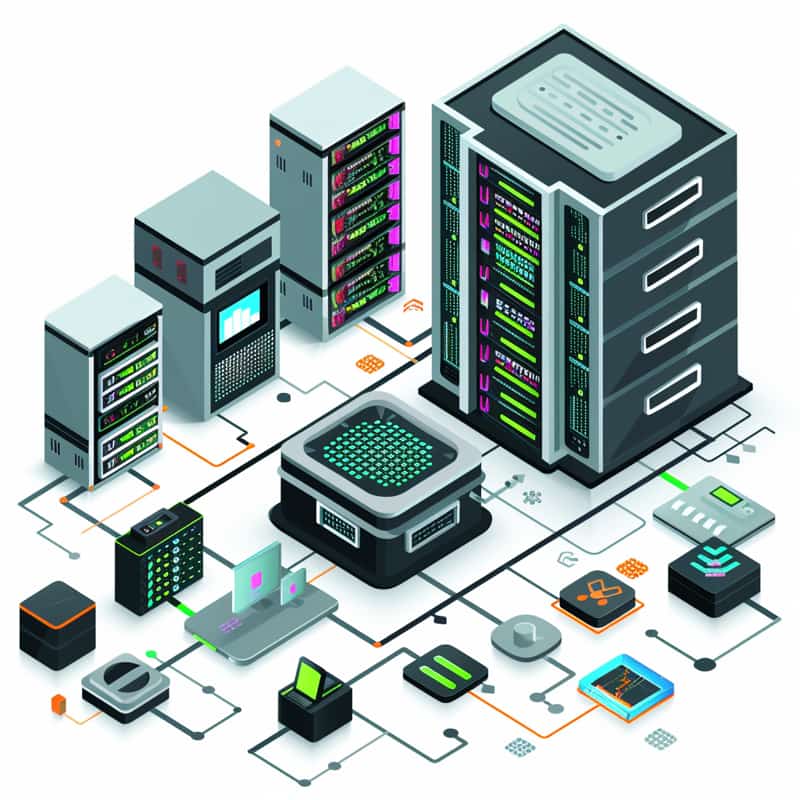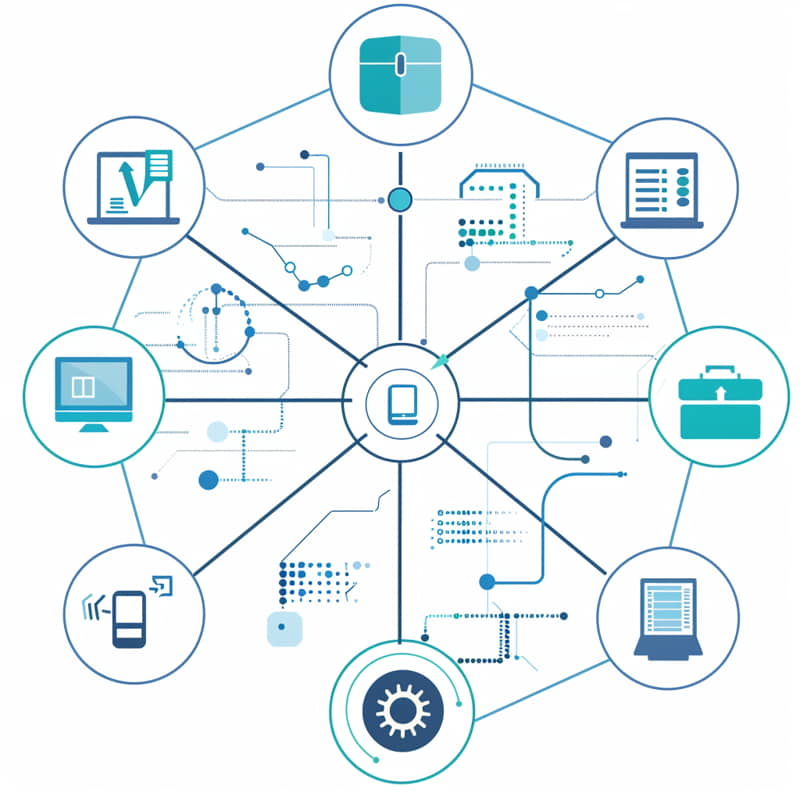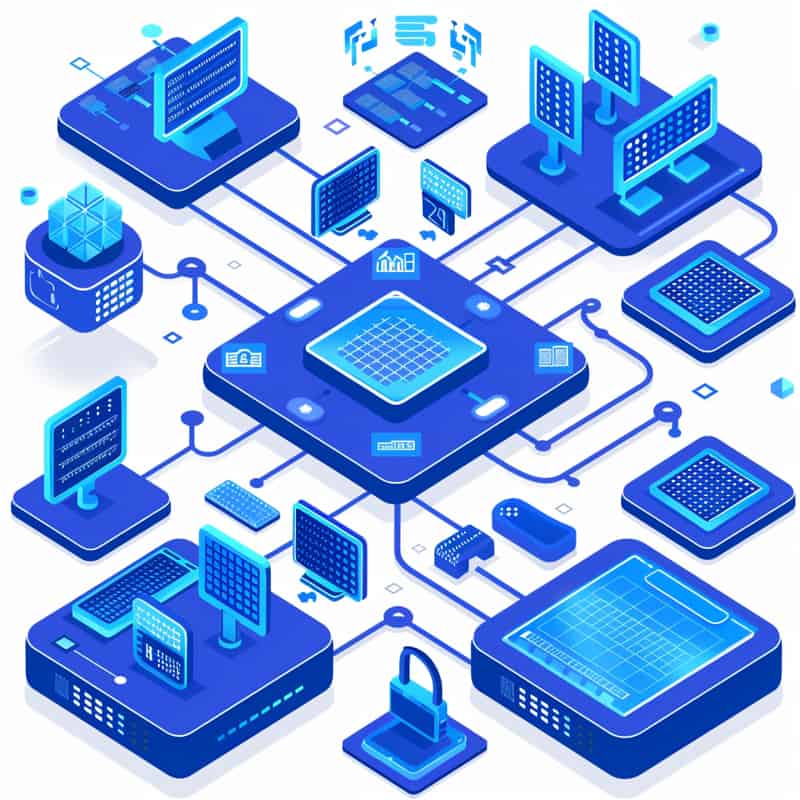Interview Questions For Oracle Apps DBA
Oracle Applications DBA or Database Administrator is a unique position within database administration that oversees Oracle E-Business Suite or other Oracle business applications. They are responsible for overseeing, administering and updating their own Oracle Database in support of these business apps.
Oracle Applications are a suite of integrated business applications used by organizations to manage various functions within their businesses, from finance and human resources management, supply chain planning and customer relationship services to customer relationship management and supply chain logistics management. To store and organize data securely across these applications an Oracle Database server must be maintained to store this vital information – making the role of an Oracle Applications DBA essential in maintaining smooth running business applications.

1. What is the significance of the ERP concept in the context of managing resources in an organization?
An enterprise resource plan (ERP) details an organization’s primary resources, such as money, labour, machines, materials, and markets. Effective planning is essential for integrating several divisions within a business and controlling development.
2. What advantages does an ERP Suite offer for managing resources in organizations?
ERP Suite has various benefits, including increased departmental collaboration, quicker data transfer, and an easy-to-use interface for end users, It removes the need for separate databases for financial and HRMS data, allowing for quicker data transmission and more convenient access for end users.
3. How can ERP Suite users alter their user interface?
ERP Suite allows users to personalize the user interface by adding or deleting fields as needed. This guarantees that the company’s needs are addressed and provides a better user-friendly experience.
4. What are the main fields for an Oracle application?
The main fields for an Oracle application are functionality, technical team, and deviated.
5. What does the functional team perform during the Oracle application development process?
The functional team collaborates with company owners to acquire needs and pass them on to the technical team.
6. What are some advantages of using the Oracle application?
The Oracle application has several advantages, including security, internet-enabled features, and cloud infrastructure support, It also offers encryption and security plugins for all players, including users, and is protected by cloud certificates from suppliers such as Amazon.
7. What are E-Roaming suites and what are their popular modules?
E-Roaming suites are software solutions that benefit enterprises by offering a variety of modules. Oracle applications, Microsoft Dynamics, JDA, Adverse, Seabell, and People’s Office are among the most prominent E-Roaming suites. Manufacturing, finance, ERM, supply chain management, CRM, and HRMS are all considered as one department.
8. Which E-Roaming suite is good at manufacturing modules and which one is popular for HRMS modules?
SAP is a prominent E-Roaming suite for manufacturing modules; however, it may lack good features and functionality for other modules. People’s Office is another popular E-Roaming suite for HRMS modules, with 90% of companies opting it.
9. Who are the leading vendors in the E-Roaming software market?
Oracle Corporation and Microsoft are the leading vendors in the E-Roaming software market, with Oracle Corporation owning almost 80% of the top popular E-Roaming software.
10. What are the main roles in Oracle database and application management?
The main roles in Oracle database and application management include monitoring the database, executing SQL codes, and troubleshooting issues.
11. What are the responsibilities of an absolute deviate in managing Oracle applications?
An absolute deviate manages the Oracle applications, performing backups, resource recovery, health checks, and applying patches to ensure the application is running smoothly.
12. What is the role of technical guides in Oracle applications development?
Technical guides write code for Oracle applications and hand it out to the BB80 team for execution in the database application.
They develop the code in the development database and move it to the test database before patching.
13. Why is patching necessary in Oracle applications?
Patching is necessary to fix bugs and bring the files to the latest version when the database software is low. Oracle sends updates for PSUs and CPUs patches that can be applied to increase the version of the form file.
14. How does the technical team apply a patch in an Oracle application?
To update the form file’s version, the technical team copies the patch to the Oracle application software location.
If an end user detects a problem, they examine various lock files and recommend a patch to fix it.
15. Who can request a patch in an Oracle application?
Patch requests can be made by both the technical team and the Division B Administrator. The technical team can apply the patch if they notice multiple issues, while the DBA can also apply it to resolve larger issues.

Oracle Apps DBA Training

Health checks are conducted to ensure that the database is operational, linked, and has all essential operations.
They also keep track of stress levels and available storage space for the program and operating system.
17. What are the two types of cloning methods in Oracle applications, and what do they involve?
The two types of cloning methods in Oracle applications are heart cloning and environment-based cloning.
Heart cloning involves installing extra software in the database, while environment-based cloning involves copying files that have been upgraded or have some functionality changes.
18. What is concurrent manager administration, and why is it relevant to Oracle and GBA?
Concurrent manager administration is the process of managing concurrent requests in Oracle applications, It is critical for handling concurrent queries and detecting problems with the database, apps, or discussion space.
19. What is a DBA’s function in concurrent manager administration?
As a DBA, you are responsible for reviewing and debugging any difficulties with concurrent requests, such as researching the cause of a failed report or determining why a concurrent request was paid.
20. What is the significance of managing settings in Oracle applications?
Maintaining settings is critical for Oracle applications since they use several servers, including Apache.If any configuration file contains a different value, the Apache server may not start. To address these concerns, a program called autocomplete is utilized to keep track of all systems.
21. What is troubleshooting, and what are the main procedures for resolving difficulties with Oracle applications?
Troubleshooting is the process of discovering and fixing errors in Oracle applications. Basic troubleshooting methods include checking for connections, listener uptime, and data transfer.
22. What can be done to improve performance in Oracle applications?
Common errors can be identified and addressed to improve performance. For example, tuning the application process can help improve overall performance if the database is not working properly.

23. What is the role of developers in application tuning for Oracle EBS?
Developers are responsible for performance tuning of Oracle EBS applications, as the tuning process largely depends on coding.
24. Who can tune applications in Oracle EBS apart from developers?
Deviators can also tune applications in Oracle EBS.
25. What are the limitations of Oracle EBS implementations?
Implementations have limitations such as installation time and third-party involvement.
26. What are the prerequisites for learning Oracle DBS?
Prerequisites for learning Oracle DBS include basic knowledge of Oracle databases, Linux commands, SQL and PSPIL knowledge, and minimum memory requirements for personal computers or lab tabs.
27. How can custom products be created in Oracle EBS?
Technical and functional teams construct seeded functions for client needs to produce unique products.They are built on the application’s GL structure and controlled by technical and functional teams.
28. What is the EBS enterprise business suite architecture and component list?
The three-tier EBS enterprise business suite architecture includes clients, applications, and databases.
Application installation and business logic require a database. EBS DB connects to the database and retrieves data for the application type.
29. What is the architecture of an Oracle e-business suite?
The architecture of an Oracle e-business suite consists of three tiers: the middle layer, the application tier, and the web tier.
30. Where is the client tier located in the Oracle e-business trade architecture?
The client tier is located on the left side and is where browsers are used.

Oracle Apps DBA Online Training




Oracle Apps DBA Course Price


Deepthi
Author